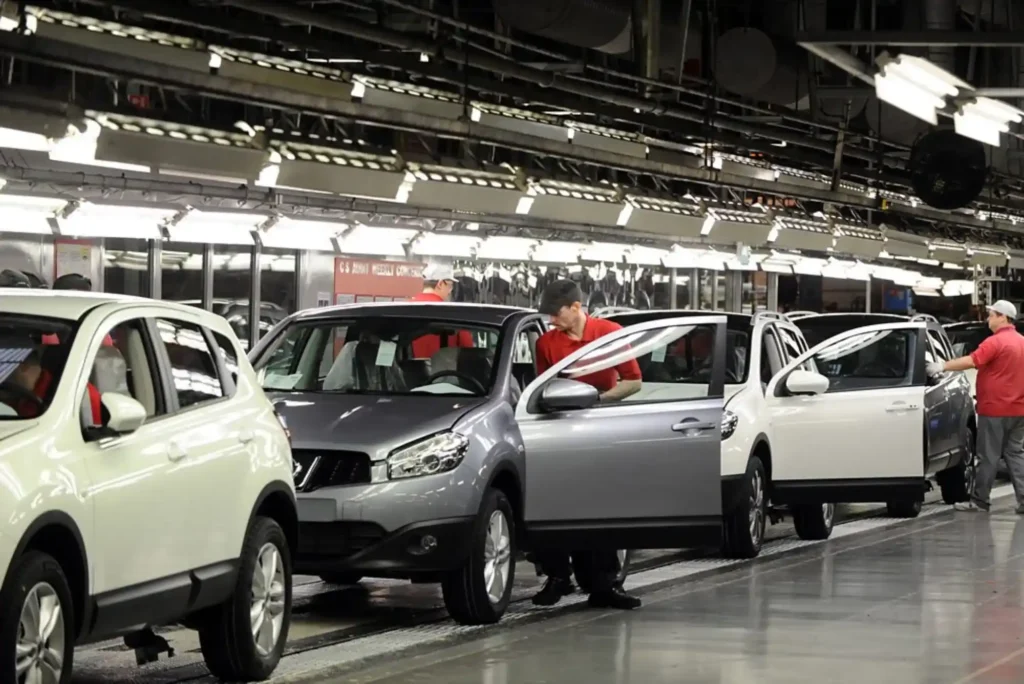In recent years, the automotive industry has undergone a dramatic transformation. With increasing environmental concerns, the rise of electric vehicles (EVs), and changing consumer preferences, traditional car manufacturers have had to adapt to a rapidly evolving landscape. A key shift has been observed in the increasing number of car manufacturers announcing their exit from specific markets, production of particular models, or even ceasing operations altogether in certain regions. These moves are influenced by various factors, including economic pressures, environmental regulations, technological advancements, and market dynamics.
In this article, we will explore the car manufacturers that are selling out, what led to these decisions, and what it means for the future of the automotive industry. We will also take a closer look at the table of manufacturers and the reasoning behind their withdrawal from certain markets or model production lines.
The Shift in the Automotive Landscape
The automotive industry, historically dominated by internal combustion engine (ICE) vehicles, is now in the midst of an electric revolution. Governments worldwide are pushing for stricter emissions standards, and many countries have already committed to phasing out gasoline and diesel cars in favor of electric vehicles. The shift to EVs, combined with advances in autonomous driving technology, connectivity, and changing consumer expectations, has created a challenging environment for traditional automakers.
As a result, some manufacturers, particularly those heavily invested in gasoline-powered cars, are finding it difficult to keep up with these sweeping changes. Faced with a combination of rising costs, regulatory hurdles, and the need to invest in new technologies, several car companies have started reducing their market presence or ceasing operations in certain regions. These decisions often represent strategic moves to streamline operations, focus on more profitable markets, or respond to shifting industry trends.
Factors Influencing Car Manufacturers’ Decisions to Sell Out
Several factors contribute to the decision of car manufacturers to sell out, withdraw, or discontinue operations in specific markets. Here are some of the primary reasons:
Environmental Regulations and Emission Standards
Governments around the world have introduced stringent emission standards in response to growing concerns about air pollution and climate change. Manufacturers who are unable to meet these standards are often forced to either invest heavily in new technologies or exit markets where their existing offerings are no longer viable. European Union regulations, for example, have been particularly tough on carbon emissions, making it difficult for traditional manufacturers to compete without significant investment in electric or hybrid technologies.
Economic Pressures
The automotive industry is capital-intensive, and economic conditions can have a profound impact on a manufacturer’s profitability. A slowdown in demand, coupled with rising raw material costs and supply chain disruptions, can make it difficult for some companies to remain competitive. In such cases, manufacturers may decide to focus their resources on markets with higher returns or products with greater profitability.
Rise of Electric Vehicles (EVs)
The demand for electric vehicles has grown exponentially in recent years, forcing traditional manufacturers to reconsider their long-term strategies. Some companies that were heavily reliant on the production of gasoline-powered cars are finding it challenging to shift to electric models. For instance, companies that have made limited investments in EV technology may struggle to compete with newer entrants like Tesla, which has been a major force in pushing the EV revolution forward.
Technological Advancements
As autonomous driving technology, connected car systems, and artificial intelligence continue to evolve, manufacturers who fail to innovate may lose market relevance. The high cost of research and development in these areas means that some manufacturers may opt out of certain markets or discontinue certain models in favor of focusing on more futuristic, profitable ventures.
Shifting Consumer Preferences
Consumers are increasingly focused on sustainability, and many are choosing to purchase vehicles that align with their values. As a result, traditional car manufacturers may be pressured to shift production to meet these evolving demands, such as the growing demand for electric cars, fuel-efficient vehicles, or green technologies. Those who fail to adapt to these shifts risk losing their customer base.
Car Manufacturers That Are Selling Out
The following table outlines several prominent car manufacturers who have either sold out of specific markets or ceased production of certain models due to one or more of the aforementioned factors. These moves signify the changing dynamics of the automotive industry as companies realign their strategies in response to new challenges.
| Manufacturer | Market or Model Affected | Reason for Selling Out/Withdrawal | Impact on the Industry |
|---|---|---|---|
| Ford | European Markets | Focus on electric vehicles and restructuring to streamline operations | Ford has withdrawn several models, such as sedans, and shifted focus to EVs. |
| General Motors (GM) | European Markets | Withdrawal from European market due to profitability challenges | GM sold its operations to PSA Group (Peugeot), signaling a shift away from traditional markets. |
| Honda | Diesel Models (Europe) | Tightening emission standards and focus on hybrid/EV technologies | Honda has reduced production of diesel vehicles in Europe and plans to pivot to hybrids and electric cars. |
| Fiat Chrysler (FCA) | Diesel Models (Europe) | Transition to electric vehicles and stricter emissions regulations | FCA discontinued several diesel models as part of their move towards EV technology. |
| BMW | Diesel Models (Europe) | Environmental regulations and push towards greener technology | BMW is phasing out diesel in favor of electric and hybrid models, particularly in Europe. |
| Volkswagen | Diesel Models (USA) | Dieselgate scandal and subsequent regulatory pressure on emissions | Volkswagen has discontinued some diesel models in the U.S. and focused on electric vehicle development. |
| Toyota | Small Cars in Europe | Low demand for small cars and a shift towards SUVs and hybrids | Toyota has scaled back production of small cars in Europe, focusing on larger and more profitable segments. |
| Nissan | European Markets | Restructuring and refocusing on profitable regions and models | Nissan has reduced its presence in Europe as part of a broader global restructuring. |
| Hyundai | Internal Combustion Engine Models (Europe) | Focus on electric and hybrid vehicles, shift towards sustainability | Hyundai has pulled some of its ICE models and emphasized eco-friendly offerings. |
| Peugeot | U.S. Market | Market exit due to poor sales performance | Peugeot left the U.S. market in 1991 but has announced plans to re-enter the U.S. with electric vehicles. |

Impact on the Automotive Industry
The decision of these manufacturers to sell out or withdraw from specific markets has far-reaching consequences for the global automotive industry. The shift toward electric vehicles is one of the most significant trends, as more manufacturers pivot to sustainability and greener technologies. However, the process of transitioning from internal combustion engines (ICE) to electric vehicles (EVs) presents several challenges, particularly for companies that were slow to adapt.
For consumers, the withdrawal of certain manufacturers from specific regions or markets may lead to fewer options in some segments. On the other hand, the growing focus on EVs and hybrid technologies could result in more environmentally friendly and technologically advanced vehicles being introduced to the market.
Furthermore, these shifts have also opened the door for new players to enter the automotive scene, with companies like Tesla leading the charge in the electric vehicle market. Traditional manufacturers who fail to innovate or keep up with changing consumer preferences risk being left behind, while newer companies with a fresh approach to technology and sustainability stand to gain market share.
The automotive industry’s shift toward greener technologies, such as electric vehicles and hybrids, has forced many traditional manufacturers to reconsider their strategies. Some have sold out or withdrawn from specific markets, while others have shifted their focus to emerging technologies and evolving consumer demands. While these changes have posed challenges for some, they also offer opportunities for manufacturers who can adapt to the rapidly changing landscape.
As we look to the future, the trend of manufacturers selling out of specific markets or ceasing production of certain models is likely to continue as companies navigate the complexities of regulatory pressures, technological advancements, and shifting consumer preferences. For the automotive industry, embracing sustainability and innovation will be key to thriving in an increasingly competitive and environmentally conscious market.











